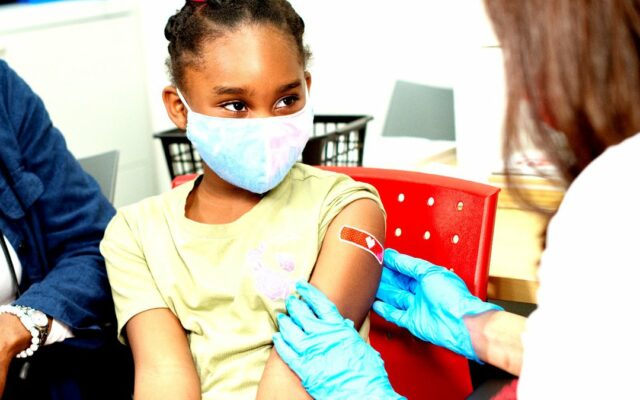Respiratory Infections Filling Lincoln’s Hospitals

Lincoln, NE (December 5, 2022) The Lincoln-Lancaster County Health Department (LLCHD) today reports a rapid increase in flu cases locally. The most cases are school-age children ages 6 to 19, with adults age 20 to 64 also starting to trend higher.
Doctors at CHI Health held a briefing Monday, confirming the report.
LLCHD officials say vaccine is the most effective way to prevent the flu and it is important for children and adults to get vaccinated now. The Centers for Disease Control and Prevention recommend everyone age 6 months and older receive the flu vaccine every year.
“Flu is happening in a big way which underscores the importance of vaccination and other actions that help provide protection against the flu,” said Tim Timmons, Communicable Disease Program Supervisor with LLCHD. “If you haven’t gotten your flu vaccine yet, don’t wait any longer.”
Flu is a highly infectious disease of the lungs that can cause mild to severe illness and can lead to hospitalization and death. Symptoms may include fever or feeling feverish, chills, cough, sore throat, runny or stuffy nose, muscle or body aches, headaches, and fatigue.
Flu vaccine is widely available in the community. The public can contact a health care provider or find a flu vaccine location at vaccines.gov. LLCHD will provide free flu vaccinations to uninsured and underinsured adults. Children age 6 months to 18 are also eligible and must meet one or more of these criteria:
- Have Medicaid coverage
- Uninsured
- American Indian and/or Alaskan Native
- Underinsured
For more information, call 402-441-8065 or visit health.lincoln.ne.gov (select “Vaccine Clinic” under “Community Health Services”).
Other respiratory illness are circulating in the community in addition to the flu. Cases of Respiratory Syncytial virus (RSV) remain high and COVID-19 is still spreading at moderate levels. While there is no vaccine for RSV, there are safe and effective vaccines to help prevent COVID-19 and flu, and both can be given at the same time.
In addition to vaccinations, actions that help prevent the spread of flu can also help prevent the spread of RSV, COVID-19 and other respiratory illnesses:
- Stay home if you’re sick and avoid contact with others who are sick
- Wash hands often
- Cover coughs and sneezes
- Wear a mask if you have symptoms
- Clean and disinfect surfaces
December 5 through 9 is National Influenza Vaccination Week, which emphasizes the importance of yearly flu vaccine. Flu viruses are constantly changing and protection from vaccination decreases over time. Getting a flu vaccine every year is the best way to prevent flu.
Questions about flu and flu vaccine? Find answers at Frequently Asked Influenza (Flu) Questions: 2022-2023 Season | CDC.
Weekly flu updates:
- Lancaster County – weeklyflusummary.pdf (ne.gov)
- Nebraska – Influenza (Flu) (ne.gov)
- National – Weekly U.S. Influenza Surveillance Report | CDC






